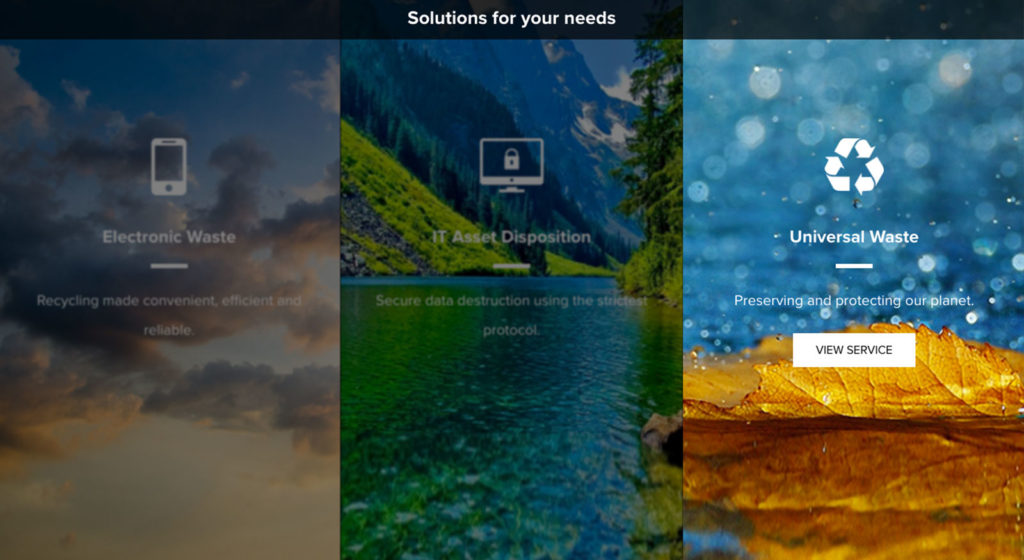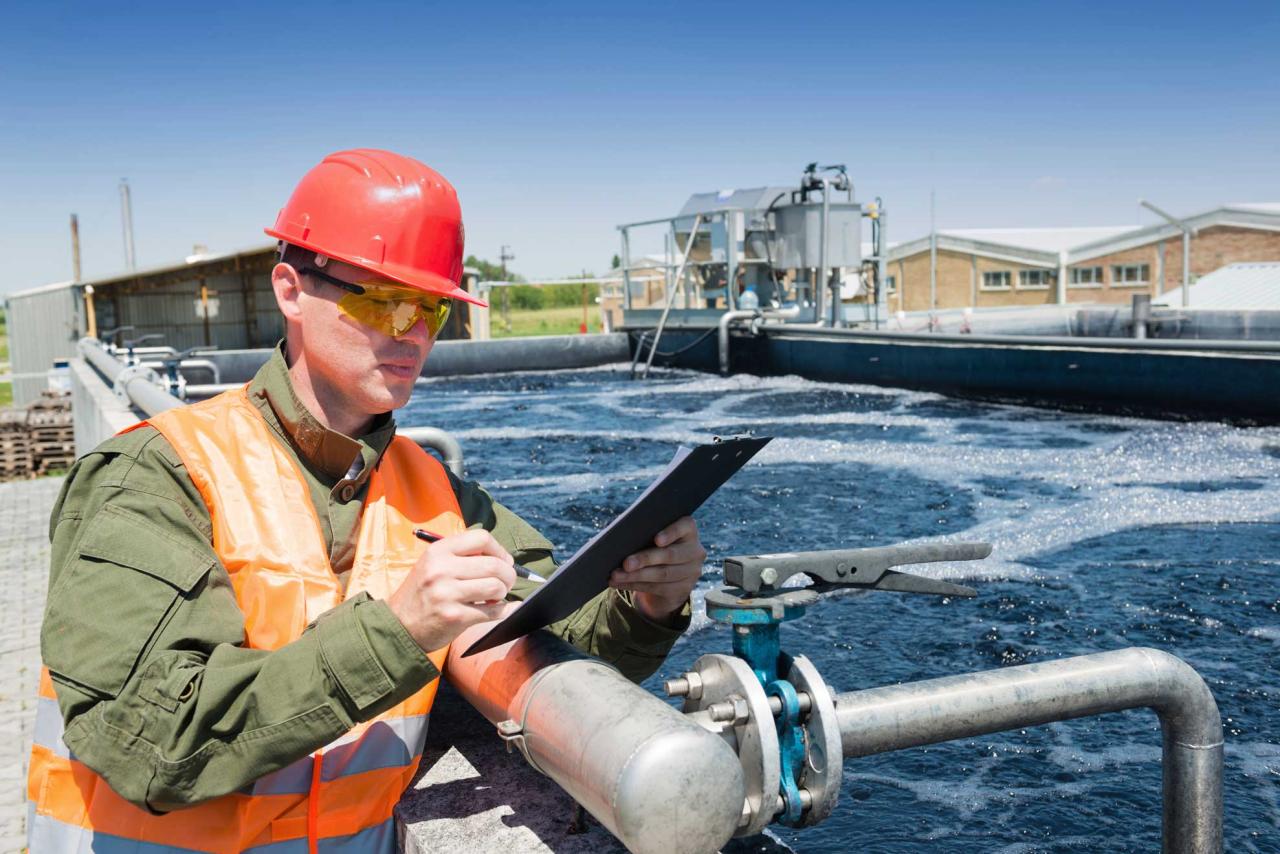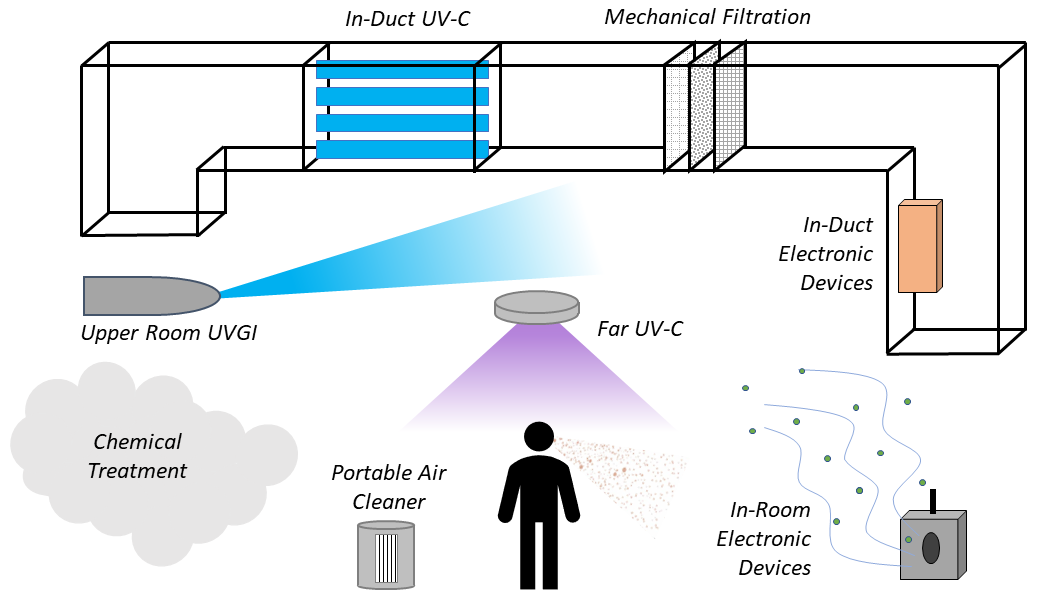Universal Recycling Technologies: A Solution for a Sustainable Future
Universal recycling technologies are revolutionizing waste management, offering a path toward a more sustainable future. The global waste crisis is a pressing concern, with landfills overflowing and environmental damage mounting. […]

Universal recycling technologies are revolutionizing waste management, offering a path toward a more sustainable future. The global waste crisis is a pressing concern, with landfills overflowing and environmental damage mounting. Traditional recycling methods struggle to cope with the sheer volume and complexity of modern waste streams. However, innovative technologies like AI-powered sorting, advanced robotics, and bio-recycling are emerging as potential solutions, promising to transform how we recycle and manage waste.
These technologies are designed to address the limitations of current systems, enabling us to efficiently recycle a wider range of materials, including those that were previously considered difficult or impossible to process. By leveraging automation, advanced algorithms, and innovative processes, universal recycling technologies aim to create a more circular economy, where resources are used and reused more effectively, minimizing waste and environmental impact.
The Need for Universal Recycling Technologies

The world is facing a critical waste crisis, with ever-increasing amounts of waste generated each year. This crisis has severe environmental consequences, including pollution, climate change, and resource depletion. The current recycling systems are often inefficient and inadequate, failing to handle the vast quantities of waste generated by modern societies. The need for universal recycling technologies is paramount to address this pressing global challenge.
The Global Waste Crisis and its Environmental Impact
The global waste crisis is a complex issue with far-reaching consequences. The amount of waste generated worldwide is increasing at an alarming rate, largely due to population growth, urbanization, and consumption patterns. The environmental impact of this waste is significant, contributing to air, water, and soil pollution. Landfills are overflowing, and the incineration of waste releases harmful pollutants into the atmosphere. Furthermore, the extraction of raw materials for manufacturing new products puts immense pressure on natural resources, leading to deforestation, habitat loss, and biodiversity decline.
Limitations of Current Recycling Systems
Current recycling systems are often plagued by limitations that hinder their effectiveness. One major challenge is the lack of standardization and compatibility across different regions. Recycling processes vary widely, making it difficult to recycle materials collected in one location in another. Another significant limitation is the complexity and cost of sorting and processing mixed waste streams. Many materials are difficult to separate, leading to contamination and lower-quality recycled products. Additionally, the economics of recycling can be challenging, as the costs of collecting, sorting, and processing materials often exceed the value of the recycled products.
Challenges Hindering Efficient Recycling Practices
Several key challenges hinder efficient recycling practices. One major challenge is the lack of public awareness and education about proper waste disposal and recycling procedures. Many people are unaware of what materials can be recycled and how to properly prepare them for collection. Another significant challenge is the lack of infrastructure and facilities for waste management and recycling. In many developing countries, inadequate infrastructure makes it difficult to collect, sort, and process waste effectively. Furthermore, the lack of financial incentives and government policies supporting recycling can discourage businesses and individuals from participating in recycling programs.
Examples of Existing Recycling Technologies and their Limitations
Various recycling technologies are currently in use, each with its own limitations. Mechanical recycling, which involves physically separating and processing materials, is a common approach. However, this method is often limited by the complexity of separating mixed waste streams and the potential for contamination. Chemical recycling, which uses chemical processes to break down materials into their constituent components, offers a promising alternative. However, these technologies are often expensive and energy-intensive, requiring further research and development to become more viable. Biorecycling, which uses biological processes to decompose and recycle materials, has the potential to be environmentally friendly and sustainable. However, this method is often limited by the types of materials it can process and the time required for decomposition.
Key Technologies for Universal Recycling: Universal Recycling Technologies
The quest for universal recycling necessitates innovative technologies that can efficiently and effectively process diverse waste streams. Emerging technologies are playing a crucial role in transforming the recycling landscape, offering solutions to the limitations of traditional methods.
AI-Powered Sorting
AI-powered sorting systems utilize advanced algorithms and machine learning to identify and separate different materials with remarkable accuracy. These systems employ cameras, sensors, and sophisticated software to analyze the composition and characteristics of waste items. The AI algorithms learn from vast datasets of images and data, continuously improving their ability to differentiate between various materials, including plastics, metals, paper, and glass. This technology offers several advantages over manual sorting, such as increased efficiency, reduced human error, and the ability to handle complex waste streams.
Advanced Robotics
Advanced robotics is revolutionizing recycling processes by automating tasks that were previously performed manually. Robots equipped with advanced sensors, grippers, and artificial intelligence can handle a wide range of materials with precision and speed. These robots can sort, shred, and compact materials, reducing the need for human intervention and improving overall efficiency. Moreover, robots can work in hazardous environments, reducing risks for human workers.
Bio-Recycling
Bio-recycling, also known as biological recycling, utilizes microorganisms and enzymes to break down organic waste materials into valuable products. This process offers a sustainable alternative to traditional methods, particularly for materials that are difficult to recycle through conventional means, such as food waste and plastic. Bio-recycling involves the use of specialized microorganisms or enzymes that can degrade complex polymers and convert them into biodegradable materials or biofuels. This technology holds immense potential for reducing landfill waste and creating a circular economy for organic materials.
Comparison of Technologies
| Technology | Advantages | Disadvantages | Impact on Universal Recycling |
|---|---|---|---|
| AI-Powered Sorting | – Increased efficiency – Reduced human error – Ability to handle complex waste streams |
– High initial investment cost – Dependence on data and algorithms |
– Improves material recovery rates – Enables the recycling of complex materials |
| Advanced Robotics | – Automation of manual tasks – Increased efficiency and safety – Ability to handle hazardous materials |
– High initial investment cost – Maintenance requirements |
– Reduces reliance on manual labor – Enhances the efficiency of recycling processes |
| Bio-Recycling | – Sustainable alternative to traditional methods – Reduces landfill waste – Creates a circular economy for organic materials |
– Limited scalability – Requires specific conditions for microbial growth |
– Offers a solution for difficult-to-recycle materials – Promotes a circular economy for organic waste |
Implementation and Adoption of Universal Recycling Technologies
The transition to a circular economy necessitates the widespread adoption of universal recycling technologies. Implementing these technologies on a global scale requires a strategic roadmap, addressing economic feasibility, governmental support, and the engagement of various stakeholders.
Roadmap for Global Implementation
A successful roadmap for implementing universal recycling technologies should be comprehensive and adaptable to diverse contexts. The following steps Artikel a potential framework:
- Pilot Projects and Demonstration Sites: Establishing pilot projects in various regions with diverse waste streams allows for the testing and refinement of technologies under real-world conditions. These projects serve as valuable learning experiences and demonstrate the feasibility of the technologies.
- Research and Development: Continuous research and development are crucial for improving existing technologies and developing new solutions for challenging materials and waste streams. This ongoing innovation is essential to address evolving waste management needs and enhance the efficiency and effectiveness of recycling processes.
- Infrastructure Development: Investing in infrastructure, such as sorting facilities, recycling plants, and collection networks, is vital for supporting the widespread adoption of universal recycling technologies. This infrastructure ensures the efficient collection, transportation, and processing of recyclable materials.
- Public Awareness and Education: Public education campaigns are essential for promoting awareness about the importance of recycling and educating individuals about proper waste sorting and disposal practices. Public engagement is crucial for fostering a culture of recycling and increasing the acceptance of universal recycling technologies.
- Policy and Regulatory Frameworks: Governments play a critical role in establishing supportive policies and regulations that incentivize the adoption of universal recycling technologies. These policies can include financial incentives, extended producer responsibility schemes, and regulations on waste management practices.
- International Collaboration: Collaboration between countries, organizations, and research institutions is essential for sharing knowledge, best practices, and technological advancements in universal recycling. This collaboration fosters innovation and accelerates the global adoption of these technologies.
Economic Feasibility and Return on Investment
The economic feasibility of universal recycling technologies is a key factor in their adoption. While initial investments in infrastructure and technology may be significant, these technologies offer long-term economic benefits:
- Reduced Waste Disposal Costs: Recycling reduces the volume of waste sent to landfills, significantly lowering waste disposal costs for municipalities and businesses. This cost savings can be reinvested in other areas of waste management or infrastructure development.
- Resource Recovery and Value Creation: Universal recycling technologies enable the recovery of valuable materials from waste, creating new economic opportunities for resource extraction and manufacturing. This circular approach reduces reliance on virgin materials and contributes to a more sustainable economy.
- Job Creation and Economic Growth: The implementation and operation of universal recycling technologies create new jobs in sectors such as waste management, recycling, and resource recovery. These jobs contribute to economic growth and provide employment opportunities in communities.
- Environmental Benefits and Reduced Pollution: Recycling reduces the environmental impact of waste disposal by conserving natural resources, reducing greenhouse gas emissions, and minimizing pollution. These environmental benefits translate into long-term economic advantages, such as improved public health and a more resilient environment.
Government Regulations and Policies, Universal recycling technologies
Government regulations and policies play a crucial role in promoting the adoption of universal recycling technologies. These policies can provide incentives, establish standards, and create a supportive environment for innovation:
- Financial Incentives: Governments can offer financial incentives, such as tax breaks, subsidies, and grants, to encourage businesses and municipalities to invest in universal recycling technologies. These incentives can reduce the upfront costs associated with adopting these technologies and accelerate their implementation.
- Extended Producer Responsibility: Extended producer responsibility (EPR) schemes hold manufacturers responsible for the end-of-life management of their products, including recycling. This approach incentivizes manufacturers to design products for recyclability and promotes the development of universal recycling technologies.
- Waste Management Regulations: Regulations on waste management practices, such as mandatory recycling targets and bans on certain materials in landfills, can create a demand for universal recycling technologies. These regulations encourage businesses and municipalities to invest in technologies that meet the required standards.
- Research and Development Funding: Governments can invest in research and development initiatives to support the development and improvement of universal recycling technologies. This funding fosters innovation and accelerates the development of more efficient and effective recycling solutions.
Key Stakeholders and Their Roles
The implementation of universal recycling technologies requires the collaboration of various stakeholders, each playing a crucial role in the process:
- Governments: Governments are responsible for setting policy frameworks, providing financial support, and establishing regulations that promote the adoption of universal recycling technologies. They also play a role in educating the public and fostering a culture of recycling.
- Businesses: Businesses are key drivers of innovation and adoption. They can invest in universal recycling technologies, design products for recyclability, and collaborate with other stakeholders to develop solutions for challenging materials.
- Research Institutions: Research institutions play a crucial role in developing new technologies, conducting feasibility studies, and providing technical expertise to support the implementation of universal recycling solutions.
- Non-Governmental Organizations (NGOs): NGOs can advocate for policy changes, raise public awareness, and support community-based recycling initiatives. They can also collaborate with businesses and governments to promote the adoption of universal recycling technologies.
- Waste Management Companies: Waste management companies are responsible for collecting, transporting, and processing waste. They can invest in universal recycling technologies and adapt their operations to accommodate these technologies.
- Consumers: Consumers play a critical role in supporting the adoption of universal recycling technologies by making informed choices about the products they buy and by properly sorting and disposing of their waste. They can also advocate for policies that promote sustainable waste management practices.
Social and Environmental Impact of Universal Recycling
Universal recycling, a comprehensive approach to resource management, holds the potential to revolutionize our relationship with waste, bringing significant environmental and social benefits. By expanding recycling efforts to encompass a wider range of materials and adopting advanced technologies, we can create a more sustainable and equitable future.
Environmental Sustainability
Universal recycling offers a powerful solution to address pressing environmental challenges. By diverting waste from landfills, we can reduce the environmental footprint of our consumption patterns. This approach promotes a circular economy, where materials are reused and repurposed, minimizing the need for virgin resources.
- Reduced Landfill Waste: Landfills are a major source of greenhouse gas emissions, contributing to climate change. Universal recycling significantly reduces the volume of waste sent to landfills, mitigating these emissions and preserving valuable land resources.
- Resource Conservation: Recycling conserves natural resources by reusing materials instead of extracting new ones. This approach reduces the environmental impact of mining, logging, and other resource extraction activities.
- Pollution Prevention: Recycling processes can be designed to minimize pollution and emissions, further contributing to environmental sustainability. For example, recycling aluminum requires significantly less energy than producing aluminum from raw materials, reducing greenhouse gas emissions.
Resource Conservation and Reduction of Landfill Waste
Universal recycling plays a crucial role in resource conservation and reducing landfill waste. It encourages a shift from a linear “take, make, dispose” model to a circular economy, where resources are used more efficiently and waste is minimized.
- Extended Product Lifecycles: Universal recycling promotes the reuse and repurposing of materials, extending the lifecycle of products and reducing the demand for new materials. For example, recycling plastic bottles into new products reduces the need to extract virgin oil for plastic production.
- Waste Reduction: By increasing recycling rates, universal recycling significantly reduces the volume of waste sent to landfills. This reduces the need for new landfill sites and minimizes the environmental impact of landfill operations.
- Composting and Organic Waste Management: Universal recycling often includes composting programs for organic waste, further reducing landfill waste and creating valuable compost for soil enrichment.
Social Benefits
Universal recycling creates a wide range of social benefits, including job creation, economic development, and community engagement. By fostering a culture of sustainability, it empowers individuals and communities to take ownership of their environmental impact.
- Job Creation: The implementation and operation of universal recycling systems create new jobs in various sectors, including waste collection, sorting, processing, and manufacturing. This provides economic opportunities and strengthens local economies.
- Economic Development: Recycling industries generate economic activity and stimulate innovation. By creating a market for recycled materials, universal recycling encourages businesses to develop new products and technologies, contributing to economic growth.
- Community Engagement: Successful universal recycling programs require community involvement and collaboration. This fosters a sense of shared responsibility for environmental protection and empowers communities to take action.
Examples of Successful Implementation
Several communities and regions around the world have successfully implemented universal recycling practices, demonstrating the potential of this approach.
- San Francisco, USA: San Francisco has achieved a high recycling rate and diverted a significant amount of waste from landfills by implementing a comprehensive recycling program. The city’s commitment to universal recycling has contributed to its environmental sustainability and economic development.
- Germany: Germany is renowned for its robust recycling system, with a high recycling rate and a strong focus on material recovery. The country’s “dual system” of recycling and waste disposal has been instrumental in achieving its environmental goals.
- The Netherlands: The Netherlands has adopted a circular economy approach, promoting reuse, repair, and recycling. The country’s commitment to universal recycling has led to a significant reduction in landfill waste and a shift towards a more sustainable consumption model.
Future Trends and Innovations in Universal Recycling

The field of universal recycling is poised for significant advancements, driven by technological innovations and evolving societal priorities. Research and development are pushing the boundaries of what’s possible, paving the way for a future where waste is transformed into valuable resources.
Emerging Technologies and Research Areas
The pursuit of universal recycling is fueled by ongoing research and development of cutting-edge technologies. These advancements are crucial in addressing the challenges of complex waste streams and maximizing resource recovery.
- Advanced Sorting Technologies: Artificial intelligence (AI) and machine learning (ML) are revolutionizing waste sorting. AI-powered systems can analyze images and identify materials with remarkable accuracy, even distinguishing between different types of plastics. This enables more efficient and precise sorting, leading to higher-quality recycled materials. For example, companies like AMP Robotics and Waste Robotics have developed robotic sorting systems that use AI to identify and separate various recyclable materials.
- Chemical Recycling: Traditional mechanical recycling methods face limitations when dealing with complex materials like mixed plastics. Chemical recycling technologies, such as pyrolysis and gasification, offer promising solutions. These processes break down materials into their basic building blocks, allowing for the creation of new products. This technology has the potential to recycle materials that are currently not recyclable through traditional methods, such as mixed plastics and contaminated materials.
- Bio-based Materials: Research into bio-based materials is gaining momentum, focusing on the development of biodegradable and compostable alternatives to conventional plastics. These materials are derived from renewable sources like plants and microorganisms, reducing dependence on fossil fuels and minimizing environmental impact. Companies like NatureWorks and Novamont are already producing bio-based polymers for various applications.
Role of Artificial Intelligence and Machine Learning
AI and ML are playing an increasingly vital role in optimizing recycling processes. These technologies are transforming waste management by improving efficiency, accuracy, and resource recovery rates.
- Predictive Maintenance: AI-powered systems can analyze sensor data from recycling equipment to predict potential failures and schedule maintenance proactively. This minimizes downtime and ensures the smooth operation of recycling facilities.
- Waste Stream Analysis: AI can analyze data from waste streams to identify patterns and trends. This information can be used to optimize collection routes, improve sorting strategies, and reduce the volume of waste sent to landfills.
- Material Identification: AI-powered image recognition systems can identify and sort materials with high accuracy, even in complex waste streams. This technology is crucial for separating different types of plastics, metals, and other recyclable materials.
Closed-Loop Systems and Circular Economy Models
The concept of a circular economy is gaining traction, emphasizing the reuse and recycling of resources to minimize waste and environmental impact. Closed-loop systems are key to achieving this goal, promoting a more sustainable approach to material production and consumption.
- Product Design for Recycling: Designing products with recycling in mind is essential for creating closed-loop systems. This involves using materials that are easily recyclable and avoiding complex designs that hinder the recycling process. Companies like Patagonia and Interface are leading the way in incorporating circular economy principles into their product design and manufacturing processes.
- Extended Producer Responsibility: Extended producer responsibility (EPR) policies encourage manufacturers to take responsibility for the entire life cycle of their products, including their disposal and recycling. This incentivizes the development of more sustainable products and encourages companies to invest in recycling infrastructure.
Timeline of Anticipated Advancements
The next decade promises significant advancements in universal recycling technologies, driven by ongoing research, development, and investments.
- 2025-2030: Widespread adoption of AI-powered sorting technologies, leading to improved efficiency and accuracy in waste sorting. Increased investment in chemical recycling technologies, particularly for complex materials like mixed plastics.
- 2030-2035: Development of advanced bio-based materials that offer viable alternatives to conventional plastics. Emergence of closed-loop systems for key materials like aluminum and steel, reducing reliance on virgin resources.
- 2035-2040: Establishment of robust circular economy models, with a focus on product design for recycling and extended producer responsibility. Significant reduction in landfill waste and increased reliance on recycled materials.
Last Word
Universal recycling technologies hold immense promise for a more sustainable future. Their ability to handle diverse materials and waste streams, coupled with their potential for economic and environmental benefits, makes them crucial for addressing the global waste crisis. As these technologies continue to evolve and become more widely adopted, they will play a pivotal role in shaping a future where waste is no longer a burden but a valuable resource. By embracing innovation and working collaboratively, we can unlock the potential of universal recycling technologies to create a world where resources are used responsibly and the environment is protected for generations to come.
Universal recycling technologies are vital for a sustainable future. Companies like the msr technology group are leading the charge with innovative solutions. By harnessing the power of advanced recycling techniques, msr technology group is helping to create a circular economy where resources are reused and waste is minimized, ultimately paving the way for a greener tomorrow.










